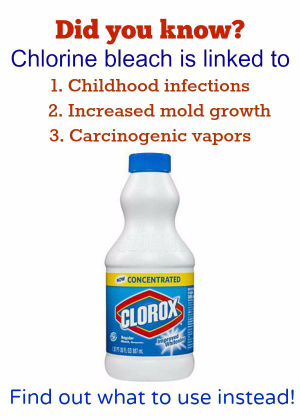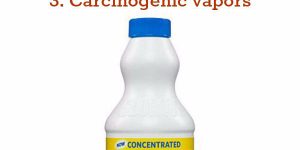Why chlorine bleach is best avoided when you restore a deck
 So, It’s been a while since you’ve restored your deck and it’s showing signs of weathering and wear, You’ve been busy who can blame you? A logical thing to do would be to find the quickest way to clean the deck. However, before you pull out the chlorine bleach to clean down your deck, you might want to reconsider. Chlorine bleach certainly kills germs, cleans hard surfaces, and is effective for doing laundry, but it shouldn’t be used as an all-purpose cleaner and you should avoid using it when you restore a deck. And here’s why:
So, It’s been a while since you’ve restored your deck and it’s showing signs of weathering and wear, You’ve been busy who can blame you? A logical thing to do would be to find the quickest way to clean the deck. However, before you pull out the chlorine bleach to clean down your deck, you might want to reconsider. Chlorine bleach certainly kills germs, cleans hard surfaces, and is effective for doing laundry, but it shouldn’t be used as an all-purpose cleaner and you should avoid using it when you restore a deck. And here’s why:
Chlorine Bleach Is Hard On Your Deck
Chlorine bleach breaks apart the lignin that binds wood fibers together and alters the wood’s color. It’s also a strong corrosive and attacks the metal nails and screws in your deck. This right here should be reason enough to stay away from chlorine bleach, but if not heres some more reasons.
Chlorine Bleach Is A Tricky Substance
Chlorine bleach is highly reactive. If you mix it with anything containing ammonia, a toxic gas is produced. People have suffered severe injury and even death from breathing this gas. As mentioned previously, chlorine bleach corrodes metal. This means it should never be stored in metal containers. The chemistry of this substance is tricky, so one should avoid getting creative when handling or using it.
Chlorine Bleach Is Hard On People
Fumes from this cleaner irritate the eyes and may cause breathing problems especially in people with asthma. Direct contact with the skin can cause irritation, and high concentrations will produce blisters and chemical burns. When using chlorine bleach, always wear eye protection and gloves. Adequate ventilation is important for indoor use.
Chlorine Bleach Isn’t The Best Mold Killer
While chlorine bleach is highly effective at killing mold on non-porous surfaces such as bathroom counter tops, it is less so on porous wood surfaces such as your deck top. The reason is that bleach doesn’t penetrate deeply into the wood. This means that it kills the surface mold but not mold that’s growing within the pores of the wood.
In addition to the above points, it’s best to use environmentally friendly products such as DeckMax cleaner. In concentrated form, chlorine bleach will kill plants and the small animals it comes into contact with. The less you use bleach, the less likely that you, your kids, and your pets will suffer from accidental exposure. For more deck restoration tips, contact us at DeckMax.








